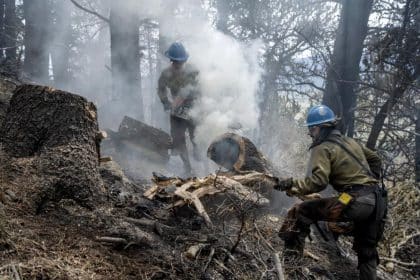Consumer Welfare Should Continue to Be the North Star of Antitrust Enforcement
COMMENTARY

The Biden administration has been working to reinvent America’s antitrust law in an avowed effort to break up large technology companies. It views this moment in history as a unique opportunity to make fundamental changes to antitrust laws with respect to the digital economy.
But in doing so, they have ironically embodied Facebook’s oft-quoted and troubling mantra, “move fast and break things.”
The key issue today is the consumer welfare standard, which has been the bedrock of America’s consumer-centric antitrust jurisprudence for decades.
Established in the 1970s, it measures the value consumers see in their products and services, regardless of a company’s size. What matters under this standard are lower prices and the quality of products, not amorphous concerns about other societal goals or subjective judgments about when sharp-elbowed competition is too sharp.
The Biden administration’s two top antitrust crusaders — Federal Trade Commission Chair Lina Khan and Department of Justice Antitrust Division Assistant Attorney General Jonathan Kanter — are challenging this long-standing antitrust principle.
Kanter has called the consumer welfare standard “a catch phrase, not a standard.” Khan, as a law student, grabbed national attention for arguing that a company should not be immune from antitrust scrutiny simply because it charges low prices and provides services consumers value.
Both Kanter and Khan argue that the purpose of the Sherman Act is to promote something beyond consumer welfare. In signaling their departure from existing antitrust jurisprudence, Khan and Kanter have taken swipes at their predecessors from both parties.
In the FTC’s November 2022 Policy Statement, Khan argues that “in recent years the agency has not always carried out” its responsibility to stop unfair methods of competition. Kanter has been less direct, but has been equally outspoken about the need to profoundly change antitrust principles.
So, while it may be appropriate for the FTC and DOJ to focus on their own priorities (every administration has that entitlement), they should do so in ways that avoid breaking things.
First, they should be consistent, clear and objective. Business leaders must know ahead of time if their conduct risks violating the law.
That has not been the case so far. The FTC said it “will put businesses on notice about how to compete fairly and legally,” but few businesses would agree that they have any idea about what the FTC views as fair competition. Similarly, the DOJ said it will act to “protect the competitive process,” but it is not clear what that means.
Second, these agencies should acknowledge that antitrust law should not punish companies for winning business fairly. Market share obtained by normal “growth or development as a consequence of a superior product, business acumen or historic accident” is legal.
Big is not always bad.
A large company is allowed to beat its competition by continually offering innovative products that consumers prefer. Antitrust law should not protect businesses from their more successful competitors, regardless of size. Consumer welfare should be prioritized as a byproduct of healthy competition, not undermined for the mere sake of competition.
Third, when it comes to changing the law, Congress should lead the charge, not administrative agencies. It may very well be time to reexamine America’s antitrust policies to ensure they are applicable to today’s economy.
Congress can hold hearings, balance various stakeholders, clarify the roles of the FTC and DOJ, and make changes that are careful, precise and forward looking. Reforms of this scope should be the product of the democratic process, not policy statements and litigation that would change the law retroactively and is subject to political cycles.
In fact, Congress is currently debating these issues. Not surprisingly, various proposals have been subject to wide-ranging criticisms, including their potential adverse consequences on the availability of products and services that consumers value and America’s leadership in technology on the world stage.
Congress should be able to find the middle ground that protects consumers, advances competition and stops agencies from unilaterally rewriting the antitrust laws with every new administration. There are populist and economic institutionalist wings in both parties. These dynamics can facilitate deliberation and bipartisan lawmaking.
If Khan and Kanter move fast and break things, the consequences could undermine even beneficial antitrust enforcement and the future of the American economy.
Phil Goldberg is a senior fellow with the Progressive Policy Institute on civil justice issues and a partner in the law firm Shook Hardy & Bacon. He can be reached at @SHBLaw and @ppi.
























